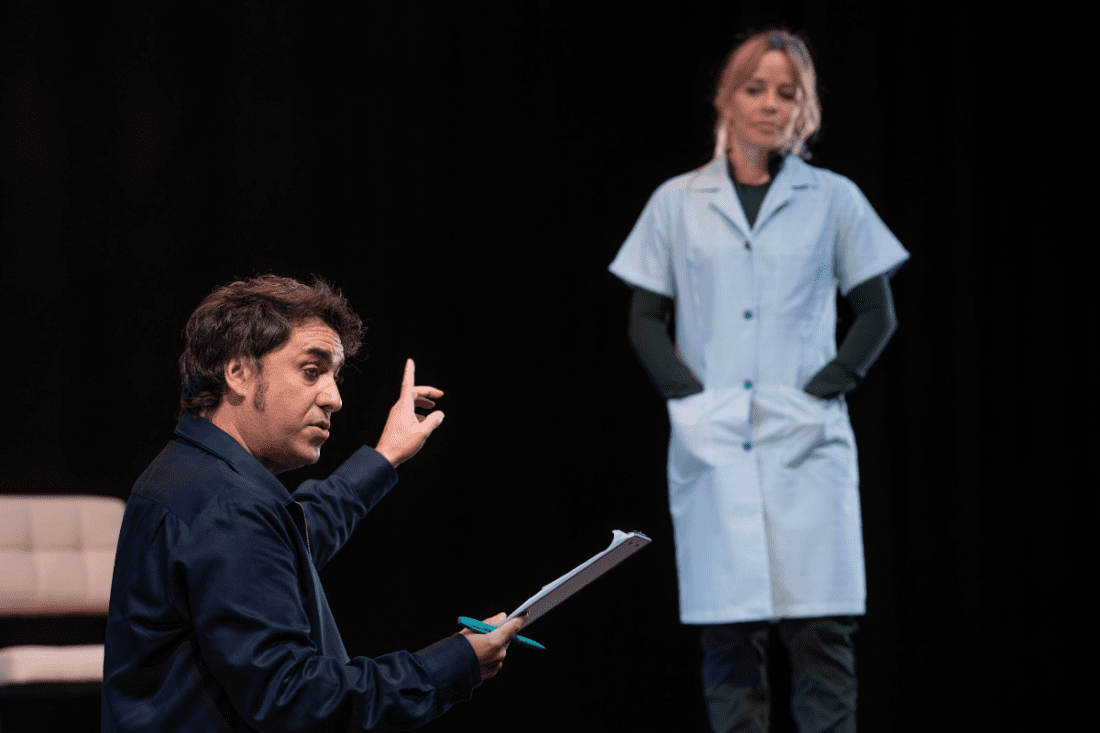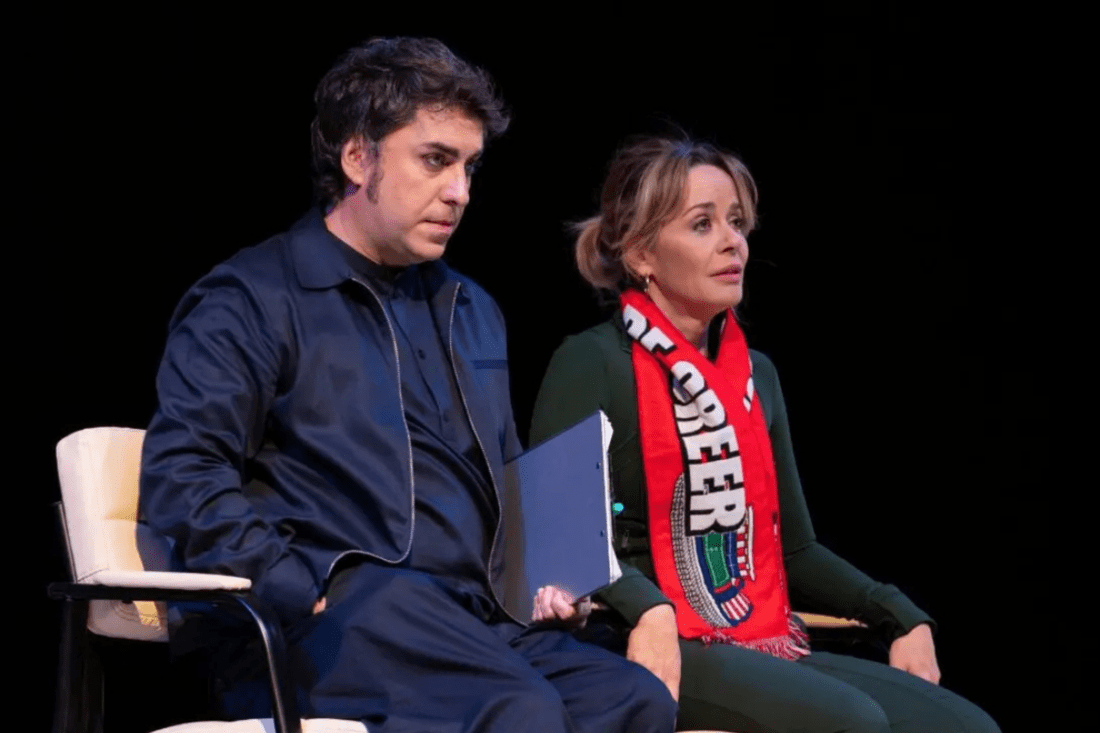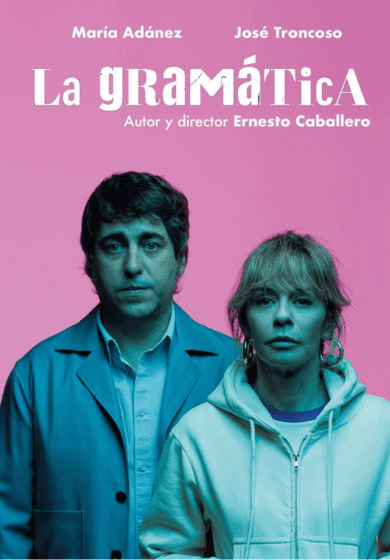
María Adánez: “Theater is a refuge for the word”
Imagine a world without language. Impossible, right? Language is the tool we use to communicate, to express ourselves, to tell us, to lie, to think.
Now imagine that you are scholarship of the language and that you speak correctly. Correctly. So much so that you can’t help but correct the mistakes they detect worldwide. This is what happens to the character of María Adánez: A lady of cleaning that suddenly becomes a scholar of the tongue. His partner on stage, José Troncosois a neuroscientist who tries to unleash what he already knows. Why? To talk like the rest of the people. To be like the rest of the people. This linguistic and theatrical mess is created by Ernesto Caballerothat writes and directs The grammarwhich will be at the Romea Theater until February 23. We talk to the actress on language, thought and evolution of society thanks to (or despite) our language.

Barcelona Theater: After the success of the Madrid billboard, it arrives The grammar In Barcelona.
María Adánez: I am eager to bring the function here. It is a very smart, very fun function that will make us reflect on the disuse of our Spanish language.
The grammar It tells the story of a lady of cleaning, who works at the Royal Academy.
My character is the female subject, a basic and practically ignorant woman, who works at the Royal Academy of Language to do cleaning work. One day a bookshelf falls on him with all the books, from the first grammar, that of Nebrija, to the recent edition of the RAE. Stays unconscious. When he wakes up from the comma, he becomes an enlightened woman and cannot help but continually correct any imperfection detected in speech. This causes the rejection and abandonment of the people around them. So he gets into the hands of a therapist, who is the character of José Troncosoto be the woman she was again. She wants to be normal again and talk badly.
He wants to unlearn, right? Do you think it is possible to unlearn?
I think if one stops reading … you can, unfortunately, unlearn what has been learned.

After this process, how is your relationship with words? Have you changed?
Without a doubt. I had to spend many hours to study this feature. Normally, a theatrical text always requires a great study, but especially for this feature it has been a great effort. And it is true that inevitably now when we hear people say mistakes, I mentally correct them.
The character has been seized from you.
Well, I was lit a light bulb.
And is it difficult to correct people?
No, but I don’t.
But your character does.
Yes. Can’t help it. But this generates great frustration and restlessness, and a situation of great suffering. That is why she decides to change this situation and again be what she was. I think the function is a very interesting reflection in this regard. For example, the cell phones make us communicate in a very quick way and the language is very unstructured. Young people also communicate very quickly. The function reflects on where we are able to lose our language in favor of integration into a society.
“The function launches the reflection of where we are able to lose our language in favor of integration into a society”
Do you think there has been a degradation of language?
Yes, social networks, cell phones, whatsapp … everything is fast and immediate, and this has facilitated the detriment of language. For example, in Spanish no one puts the first exclamation or questioning sign. The people, throughout history, are what has been created by the current language and now we are sowing the seed of what will be spoken in years. And it would be a shame that this language was not so rich in nuances. There will always be the theater, which is a refuge of the word. But on the street …
Does the language bring us closer or move us away from each other?
Language is the path of communication that human beings have. It is really what defines us as a species. What we are comes from the need for human beings to communicate and leave our written history for future generations. Without the language we would not be you and myself right now.

We are at a time when language tries, for example, to reflect the non -binary reality of people.
Yes, but we must not forget that Spanish has a neutral, which includes the male gender and the female gender. We must not lose the richness of our language.
Already, but it is also normal that we are changing it. Do you think reality needs to be changed so that language can change? Or do you need to change the language to change reality?
I think reality is not changed through language. It is changed through culture, awareness and education. No need to transform a word to designate a group that in itself has the right to live and to be respected, tolerated and integrated. I think the most important thing is to transform the thought before the word, because otherwise, there is no transformation. I don’t know if I tell myself. Do not stay in the mere word, in the form, but it transcends. May change, tolerance, equality, respect exist so that we can coexist human beings.
“The most important thing is to transform the thought before the word”
Did all these linguistic debates emerged in the rehearsals?
Totally! In addition, our assistant director, Pablo Quijanowho is 23 years old, has contributed a very different view of ours. New generations live it in a much more natural way. They are much more flexible, in that sense.
More information, pictures and entries at:












